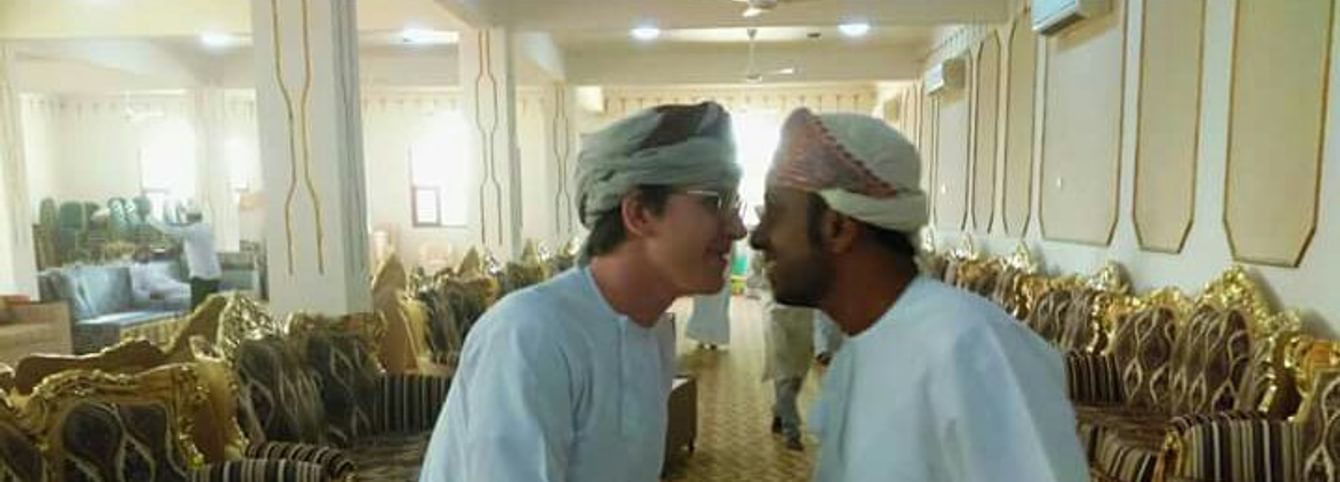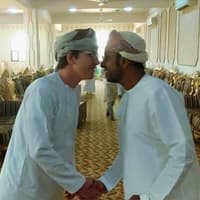Ethan McHugh
Ethan McHugh is an alumnus of the 2017 CLS Arabic program in Ibri, Oman. He recently graduated from Middle Tennessee State University with a bachelor’s degree in philosophy and religious Studies. He is currently interning at the Nashville International Center for Empowerment where he assists refugees and immigrants through an adult education program. In the fall, he will begin a master’s degree program at the Center for Middle Eastern Studies of the University of Texas at Austin. Ethan hopes to live and work in the Middle East after graduate school.
Drawing Parallels
I was born in Nashville, Tennessee and grew up in the Middle Tennessee area. Tennessee culture, as part of the American Southeast, has a large emphasis on food, family, and music. During my time in Oman, I realized that although Oman is very different from Tennessee, there are many parallels between the two cultures that can be drawn upon for comparison. For instance, because of the emphasis on food and family that exists in both cultures, I was able to highlight the differences between the two cultures against a backdrop of familiarity. The similarities between the two cultures and my overwhelmingly positive experiences in Oman have facilitated a more humane interest in the region in my family, friends, and peers alike. I have really enjoyed being able to represent Oman and Gulf culture in such a genuinely enthusiastic way.
Trial and Error
One afternoon, my language partner was talking with a fellow student who had gotten in the habit of making lighthearted quips to some of the language partners. After my language partner gave his rebuttal, jokingly calling the student a problem, I added that he was a Walad Haram, translated in English as ‘forbidden child’ or ‘illegitimate child.’ My language partner blushed and began to laugh heartily, letting me know how serious that title really was. I couldn't help but blush and let out a nervous laugh as I apologized. Even though it ended up being a pretty serious blunder, it was nonetheless funny and my language partner was very forgiving.
Beauty of Arabic Language
One of my favorite parts of learning Arabic is the precision of the language. While this can be a bit overwhelming for a new learner, it becomes an incredible aspect of the language once you get past the sheer volume of vocabulary. I find Arabic grammar very clean, rigid, intuitive, and I dare say enjoyable. I also find it fascinating how explicitly embedded the worldview and culture of the region is in the language. My favorite phrase in Omani Arabic is A7sant. It literally means “you did well,” but in common usage it's the equivalent of saying “thank you” after someone has done something for you, handed you something, or assisted you in a similar way.



